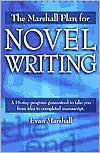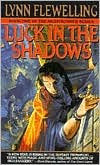Wednesday, July 26, 2006
KISS Rule vs. Excessive Creativity
As I'm diving deeper into the editing of THE REFLECTING STONE, I am finding an endless series (the entire novel!) of "pivotal moments" -- moments where I have written the existing draft such that one thing happens, but in the editing I think of some other thing that could have happened, that might have been more interesting. That is part of my task, to take an interesting scene and make it even more interesting. However, this quickly creates a "veritable plethora" of possibilities and can lead in no time to absolute confusion. Which direction? Which choice? What if this -- or that? Suddenly a tightly-wound story becomes an unending series of potentials, of "what-if's", and I'm thoroughly lost in how to proceed. I've dived into the abyss of creativity and I cannot find my way back to the simplicity of a coherent story line.
Except I can -- it's called the "KISS Rule", which, as you probably already know, stands for "Keep It Simple, Stupid!". No, I'm not really calling myself or anyone else stupid, but the point is where we make things complicated, we sometimes just need to stop and simplify and then keep things simplified. Get back to the basics.
The reason I was able to get through the entire manuscript in the writing phase was because I had a plan. Now, as I do the editing, I must remember to stick to a plan. The plan I had was a good one. A lot of what I've been reading from the existing draft fits very well together and I'm thoroughly pleased with it. So, when those moments come along and I suddenly see too many possibilities, and then try to figure out how each would affect the remainder of the story ... I need to keep it simple, and remember that a plan is better than wallowing in the abyss of neverending potentials, and just refer back to my original plan and limit whatever I might contemplate so that it will fit in with the original plan (and therefore automatically set aside any possibilities that call for major rewriting of every scene to follow thereafter until the conclusion of the book). The goal is not to find a whole new way of doing something, or changing the story, at this point, but simply to take what I do have and look for a better, more dramatic or expressive way of showing it in the manuscript.
To do this, I need to know for each scene what it's original purpose was, including goal/complication/resolution. I already know all of my scenes are justifiable, having gone through a review of scenes in the pre-planning and while writing and before starting to edit. However, I can still consolidate, add a scene, etc., if I find better alternatives or the need to draw out more detail of the story. But, keeping a firm grasp on the original plan, I can limit my brainstorming of potential editing routes to just those routes that are in keeping with the intent of the original plan. I really don't want to rethink the entire story at this point, and see no indication whatsoever that the story needs such drastic rewriting.
It's tough, because I tend to see a lot of possibilities, but applying the KISS Rule and keeping myself grounded in the original plan will hopefully help me to keep the editing moving forward rather than digressing into too many potential variations and wallowing in a sea of excessive creativity. There is such a thing as too much of a good thing.
Adrian
Subscribe to:
Post Comments (Atom)








1 comment:
Love this KISS rule. It's something I can think of when I am in the midst of confusion over my current work-in-progress.
Post a Comment